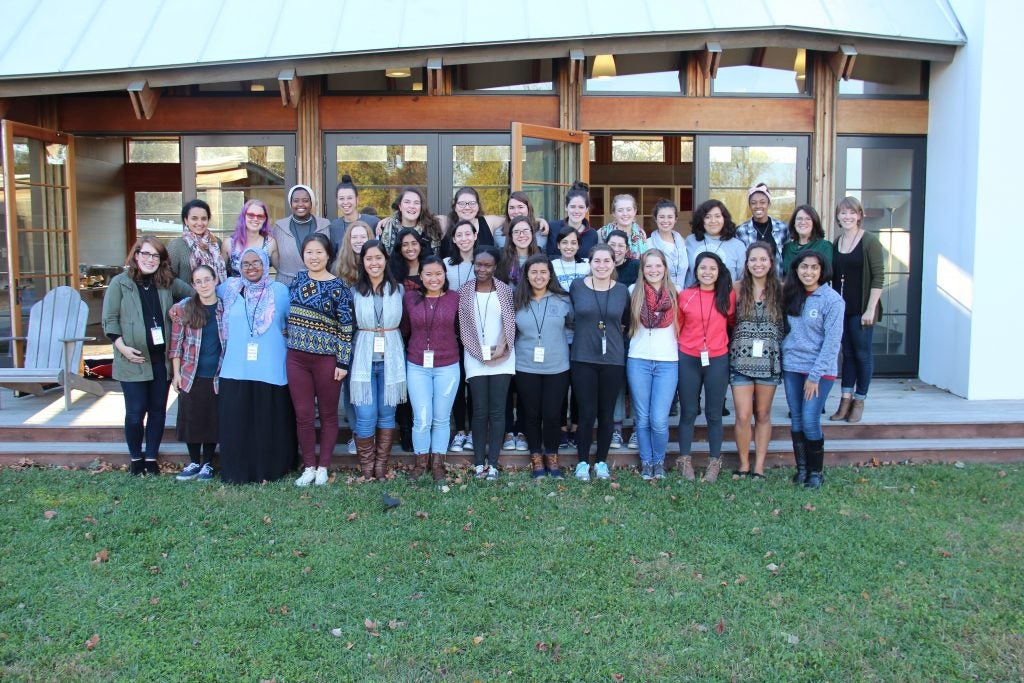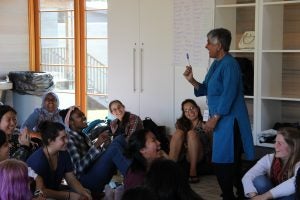A Safe Space for Women in Faith
Now, perhaps more now than ever, it is so important for the university to provide safe spaces for students to discern and reflect. Interfaith dialogue is essential, and the university’s many chaplaincies demonstrate this beautifully. But often we, or maybe it’s just me, seem to forget the importance of creating spaces where you don’t always need to feel like you’re connecting with “others’’. Rather, you can allow yourself the much needed comfort and support given by those who perhaps share a similar experience to yours. The Women in Faith retreat provided just that—a chance for women to connect with each other, regardless of differences in faith traditions, on what it means to be a woman in the face of religion, two identities that perhaps can be seen as exclusive but connecting us all. This common experience, women facing faith together, was eloquently explored on a day retreat at the Calcagnini Contemplative Center through activities and narratives provided by Rabbi Rachel Gartner, Reverend Olivia Lane, and Shiva Subbaraman.
Religion is not what brought me to the hilltop. I mean, clearly, since Georgetown’s undergraduate Jewish population is only approximately 8%, religion didn’t even make it as a bullet point on my college pro-con list. Attending regular Shabbats at Georgetown was not on my to-do list of activities to complete before graduation, alongside the standard newbie goals of participating in Rangila or taking a photo with John Carroll to share with the family, or maybe being decisive enough to declare a major. My background from an incredibly secular interfaith family made faith seem like an afterthought when anticipating what my college experience would shape out to be.
I have struggled with my own faith, belief in a greater power as a concept, and how—or if—I want to associate myself with a specific faith tradition or belief. Regardless of this internal chaotic struggle, the Women in Faith retreat was an experience that, due to the determined work of our campus ministers and the department’s dedicated interns, solidified my belief in the need for dialogue amongst women and those of all gender identifications to try to understand: what it means to be uniquely challenged as a woman in faith; how our intersecting identities can further isolate and/or motivate us; and how supportive and necessary friendships can be amongst this important community.
I’d like to personally thank the four incredible Campus Ministry interns for identifying a need within the Georgetown community and taking it upon themselves to create such a thought-provoking retreat. These powerful women created an experience that I, and others, didn’t realize we needed. Faith can be tricky, heavy, and often terrifying, but holding space for other women is something simple I can do to support this amazing community that accidentally found me. My stances on my own faith might still be undefined, but I firmly believe in the profound lessons and strengths that the Women in Faith retreat graciously offered.
Written by Gabi Tew, C’20

